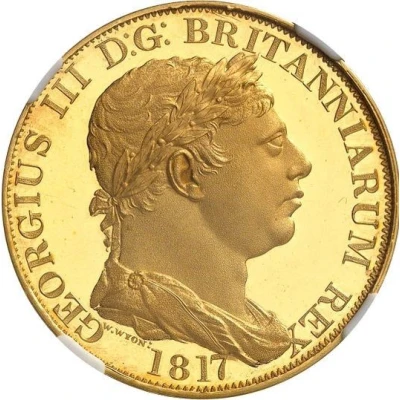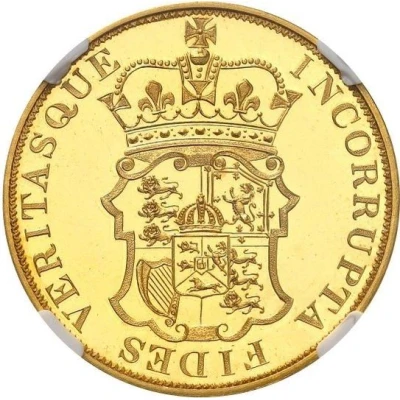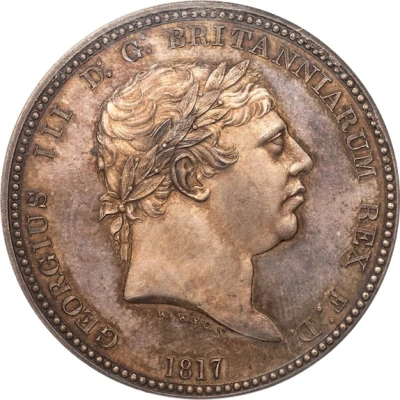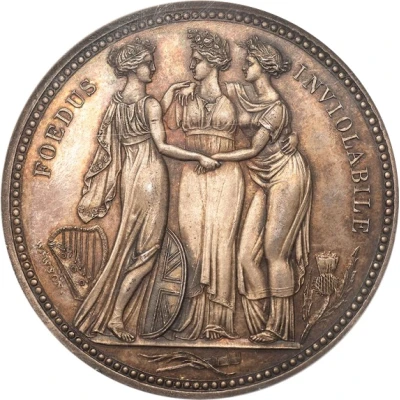


© MDC Monaco Monnaies de Collection sarl
1 Crown - George III Pattern
1817 year| Gold (.9167) | 48.69 g | - |
| Issuer | United Kingdom (United Kingdom, British Overseas Territories and Crown Dependencies) |
|---|---|
| King | George III (1760-1820) |
| Type | Pattern |
| Year | 1817 |
| Value | 1 Crown (¼) |
| Currency | Pound sterling (1158-1970) |
| Composition | Gold (.9167) |
| Weight | 48.69 g |
| Shape | Round |
| Technique | Milled |
| Orientation | Coin alignment ↑↓ |
| Demonetized | Yes |
| Updated | 2024-10-08 |
| Numista | N#316806 |
|---|---|
| Rarity index | 97% |
Reverse
Crowned royal shield of arms, legend around.
Script: Latin
Lettering: INCORRUPTA FIDES VERITASQUE
Translation: An untarnished faith
Engraver: William Wyon
Comment
In 1817, the English government issued a new silver crown and a new gold coin: the sovereign. Struck in the new London Monetary Workshop presses, these coins are of the type of Saint George slaying the dragon. The original dies are the work of an outstanding Italian gem engraver, Benedetto Pistrucci. When the project was launched in 1816, another engraver, English, William Wyon, suggested his model. 18 in silver and 7 in gold were produced by the Royal Mint. The coin by Pistrucci was finally chosen. He then became chief engraver while Wyon had to wait another ten years to be chief engraver, in 1828. The customary name of the crown proposed by William Wyon, Incorrupta Crown, is variously interpreted by British numismatists. It would derive from the Latin text of the reverse INCORRUPTA FIDES VERITAS QUE, which can be translated as "A Faith Without blemish " or "A Faith Beyond Corruption". Alas, this beautiful proclamation of intention is not enough to convince the influential Joseph Banks, renowned botanist and friend of the director of the Royal Mint at the time, who knew how to place his Roman protege in place of the young and promising William Wyon.Interesting fact
One interesting fact about the Pattern 1 Crown - George III (Pattern) 1817 from United Kingdom is that it was designed by the famous Italian engraver, Benedetto Pistrucci, who is known for his work on various coins and medals, including the British sovereign.

